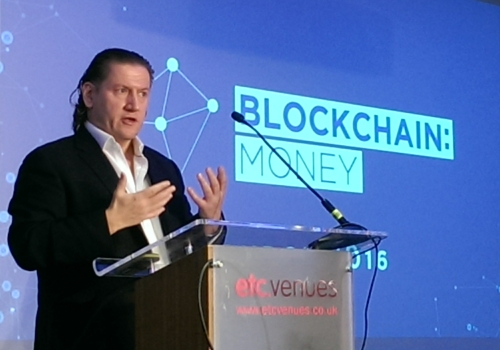
The success of the First Global Credit Trading competitions is due to the ingenuity and persistence of the people who choose to take part. We have old friends who have traded with us from almost the beginning. These people have profitable live accounts, who like the challenge of pitting themselves against others. We have other people who have never traded with us before.
Each competition is different, not only because the people taking part are different but because live market conditions are always in flux, always presenting new challenges. This time, traders who made the bulk of their money trading bitcoin FX were going to have a hard time making headway. The only thing in their favour, it’s a level playing field and all the bitcoin fx traders were going to have a hard time making a profit. But in the Fantastic Four Competition a higher number of players used bitcoin FX to try to increase their competitive edge.
It is also interesting to note that of all the people taking part in the competition, over half of the traders playing were at least somewhat in profit. But among those traders who were profitable 1.2% of them made over 70% of the profits. Since there could be only 4 winners, I think it should be noted that people really made an effort to aggressively trade a wide variety of strategies. And for so many people to be profitable during very difficult trading conditions speaks to the quality of the people taking part. So without further delay, I’d like to introduce you to the diverse and interesting group of traders who have won the Fantastic Four Trading Competition.
Winner – Futures Trading Category

Name: Alejandro Alvarez
Day Job: Serial Entrepreneur, Computer and Network Security Expert
Location: Malaga, Spain
Specialty: Futures Trading
Interviewer: What was your strategy that let you do so well in the competition?Alejandro is a serial entrepreneur and father of 4 who not only enjoys futures trading, but a rich and active lifestyle as well. He has not taken a position in bitcoin but observes several groups. He has seen several of First Global’s competitions advertised, but his interest was piqued when he saw that this time we had added futures to the roster of available markets.
I have learned not to trade the noise. I risk enough to maximize my available capital though I was a little overinvested several times during the competition. But I have learned to be patient, waiting for the right moment to enter the market. Once I am in a trade, if I’ve got the direction right, I hold onto it and add to my position. When I believe the conditions are about to change, then I exit. To judge the market conditions for a trading decision I analyze interrelated markets.
Interviewer: Which futures did you trade to win the competition?
I only traded the S&P, 10 Year US Treasury Notes and Gold. I did not use currency switch to move out and into bitcoin.
Interviewer: When you start trading the winning account, what are your plans for the profits you will make?
I plan to start immediately. I’m not interested in using the profits. I plan to leave them in the account to let the capital increase.
Interviewer: Did you discover or learn anything during the competition you’d like to tell us about?
I learned that you have to be aware that anything can happen. You need to be ready for unexpected things.
Interviewer: Is there anything you might have done differently in hindsight.
Yes of course, always. But asking that question is not useful because in real time you never know what will happen. Hindsight is 20/20.
Interviewer: Tell us about any memorable trades you made during the competition?
I remember one long S&P trade where I went long at 2030. I added to the position several times and exited at 2080. In hindsight I exited too soon as the market eventually reached 2105!
Winner – Stock Trading Category

Name: Perica Vukelj
Day job: Software developer
Location: Montenegro
Specialty: Stocks and options
Perica is a happily married software developer living in the beautiful country of Montenegro. He has a daughter who is very important to his happiness. While he works in development, he is also a bitcoin holder who likes to occasionally trade stocks and options. We interviewed him to find out how he did so well in the stock trading category and to learn a bit more about his trading style.
I first learned about the Fantastic Four competition on the NewsBTC website. “I said to myself, this is great! Exactly what I needed. Now my bitcoin can be put to work. Because it was always annoying to me that the capital I have in bitcoin is just sitting there ‘only in bitcoin’. It is time consuming and expensive (trading fees and the time for international bank transfers) to be in bitcoin when I am bullish and when I am not so content with bitcoin to need to get fiat from a bitcoin exchange and put it somewhere else. And if I’m wrong and pull out of bitcoin, (which I am very often) I may miss big move and later get less bitcoins for the same money.
I love competitions and competing. After all, trading is, itself, a sort of competition, (In my humble opinion). So I decided to try for myself in the Fantastic Four Competition. I didn’t think I could get to the top of the list but with a bit of luck I did.
It was great experience. When you are competing there is always pressure to trade. During normal trading you might pass on some opportunities because you are not so confident. But in a competition you have to give it a try – after all the other competitors probably won’t pass on it. Also, you never know how close the other traders are behind you and how far away are the ones ahead of you! This pressure kept me trying to give my best every day. Keep looking for new trades all the time. It was fighting market moves and fighting with other competitors at the same time.
Winner – Bitcoin Fx Trading Category

Name: Eric Stein
Day job: Entrepreneur, Master trader, guitarist and Search Engine Optimization specialist
Location: Chicago, USA
Specialty: some stocks, some futures, bitcoin
Eric is a true Renaissance man who at age 35 has been involved in the bitcoin ecosystem since 2013. His most recent accomplishment is the launching the ‘bitcoin drudge report’ at http://Bitcoins.sx. He obtained many of his own bitcoins through mining. We caught up with Eric during a break in his hyper busy schedule to ask him about his opinions about the trading competition and the bitcoin market in general.
Interviewer: Do you use bitcoins to buy things?
Sure! When I can. I love supporting the bitcoin ecosystem.
Interviewer: What was the strategy that let you do so well in the competition?
I traded some stocks, had some good runs. Also traded a few futures but I did not have much luck in futures. Then I moved all my profits into bitcoins.
Interviewer: Do you have an opinion on why bitcoin has started to rise recently after having traded in a range for so long?
Yes, I believe it is due to increased mainstream adoption, increase in news exposure, increased blockchain believers, etc. I believe it is still way under priced.
Interviewer: Do you have any ideas about what will move bitcoin towards mainstream acceptance? Large merchants like paypal and amazon directly accepting bitcoin will help – or when they start using some kind of blockchain technology.
Interviewer: What do you think the price of bitcoin will be a year from now?
$999,999 per coin!
Interviewer: Would you like to build a career based on trading?
Yes. I want to be the worlds’ greatest cryptocurrency trader.
Interviewer: When you start trading the winning account, what are your plans for the profits you will make?
I will grow my portfolio to be holding millions of dollars’ worth of bitcoin.
Interviewer: Did you learn anything during the competition you’d like to share?
Yes. I learned a ton. Go big or go home. Stay focused, stay non-objective and stay fearless!
Interviewer: Is there anything you might have done differently in hindsight.
Stay focused and don’t jump into moves without the proper due diligence. Look at charts at different time scales.
Interviewer: Is there anything else you would like to say about bitcoin or the trading.
Yes. Bitcoin TO THE MOON!
Winner – Overall Trading Category

Name: [let’s just say] Entheogenism
Day job: Full time trader/gambler/ Entrepreneur
Location: Somewhere in the USA
Speciality: Stocks and currency
Here’s a cross section of his comments about the competition and cryptocurrency in general.I originally ran into Entheogenism on the bitcointalk.org forum and invited him to join the competition. He did join and by the end had achieved a top rank. Entheogenism is full of strong opinions and is absolutely another Renaissance man with a huge number of diverse interests. Among these accomplishments he is a self-styled crypto enthusiast and decade-long FX and stock trader. A transhumanist-futurist, creative writer, ambitious person interested in space colonization & human enhancement. His twitter profile is @Entheogenism for those that want to connect more directly with him.
I use Bitcoin & Ethereum to gamble on dice & gaming sites. I would use btc to pay Lyft, AirBNB and Expedia if I needed to, but this hasn’t come up yet. I also use bitcoin to buy on Steam or buy Amazon / Walmart gift cards & turn to fiat to pay bills.
Thoughts On himself
I belong and am active in transhumanism/futurism groups a lot more than crypto-related ones. However, I’ve been an active BitcoinTalk forum member since Feb. 2014 and have been on some other crypto forums as well, though sparingly. I’ve used bitcoin faucets since 2014. I use them even now, though much less than years ago, of course. I believe free or ad-based crypto/wealth distribution to unbanked and/or poor people is extremely valuable because otherwise they cannot participate online.
Thoughts on the competition and the FGC platform
During the competition I did not use the currency switch system. As far as I am concerned it would be simpler, more elegant & convenient to simply add FX currency pairs trading instead. I found your platform intriguing in that though it lacked FX, it did offer individual stocks. A ridiculously broad amount of them, in fact, far more than any FX broker or bitcoin site you’ll find (and I’ve reviewed almost all of them, for years). The ETFs & bond/Index Futures you offer are intriguing, however, they don’t seem practical except for a several-months/years even, style of trading, as those instruments take eons to manifest (finally) some macro price moves, compared to individual stocks. So, I focused my trading on the DOW (DIA), NASDAQ and the biggest IT Tech stocks exclusively. I made most money with NASDAQ by far.
Thoughts on bitcoins
BTC/USD price dynamics in 2009-2013 reflected the fact this was a new technology that changed the world dramatically, with unknowns as fundamental as ‘Gregory Maxwell in 2011 thought he would go to jail for working on bitcoin’ and ‘Satoshi was so uneasy about being a bitcoin dev/founder that he eventually disappeared in 2010, leaving matters to Gavin Andresen.
So, here you had something that the world had never seen before, suddenly creating a gold rush, yet with ginormous precedents worrying people about ‘going all-in’ on this: Liberty Reserve, 2012-2013 legal troubles. MegaUpload. Napster. eGold. There were so many internet projects that were similar in a lot of ways, that had got shut down, before BTC, that people were afraid, the whole way, until in November 2013, the US Congress, widely expected to eyebrow negatively BTC if not outright try to ban or illegalize it – Instead, acclaimed that crypto/bitcoin was a positive invention!!!! They were happy people would use it!!!! WHAT?? REALLY? So of course the price went ballistic in mid-Nov-2013 up to late December, by which time China’s involvement had come to a serious stopgap due to their central bank forbidding any big finance institution from using BTC (as it was deemed too risky/destabilizing).
These 2 giant BTC price bubbles in 2013 deflated dramatically in early 2014, helped even more by Mt. Gox’s final collapse. Crypto then took 1.5 years to recover from this drop, even as institutional & corporate investment flooded the scene. In late 2015 after the August stock market global scare (from China), wealthy Chinese were extremely worried about capital controls being imposed. So, they rushed to BTC, for the first time in such numbers again, since 2013. This was in addition to the russian MMM ponzi’s need for a useful utility vehicle to move funds around – bitcoin was perfect for this. When these inflows pumped BTC’s price in Oct 2015, people took notice. They had long awaited the signs of the ‘pump’ which should come from nearing the July 2016 block reward halving btc event. So, as soon as they saw this rise, they jumped in. This pyramid effect is what caused the price, relatively stagnant / hitting bottoms throughout 2014-2015, to finally rise & maintain such higher floors, during late 2015 & all of 2016 so far.
Winner prize accounts will be opened tomorrow. You’ll be able to follow the winners and watch their returns climb on the FGC blog or by following us on @firstglobalcredit on Twitter. and future articles on performance.






 June 23, 2016 Geneva / London / Hong Kong
June 23, 2016 Geneva / London / Hong Kong





